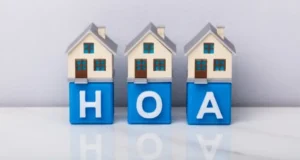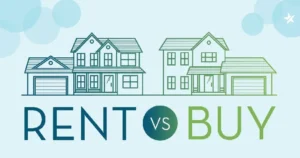Facing foreclosure is a stressful situation, but understanding your options can help you navigate through it and possibly save your home.
In this article, we’ll explore the latest strategies and programs available to homeowners in financial hardship. From working directly with your lender to leveraging federal assistance programs, these steps can help reduce payments or stop the foreclosure process.
Contact Your Lender
Your lender should be your first point of contact if you’re struggling to make payments. Many lenders offer foreclosure prevention options tailored to individual circumstances.
- Reinstatement: Lenders may accept a lump sum payment of less than the total due to bring the mortgage current, combined with forbearance agreements.
- Forbearance: Temporarily reduce or suspend payments while you work on regaining financial stability.
- Repayment Plans: Resume monthly payments plus a portion of the overdue amount to catch up gradually.
- Loan Modification: Adjust loan terms to reduce payments, extending the loan term or lowering the interest rate.
Tips for Contacting Lenders:
- Be proactive and communicate early.
- Document all conversations and agreements.
- Consider seeking help from a HUD-approved housing counselor if negotiations stall.
Modify or Refinance Your Loan for Lower Payments
Refinancing or modifying your loan can significantly reduce your monthly payments. Several federal programs aim to make these options accessible:
Home Affordable Modification Program (HAMP)
- Reduces payments to 31% of gross income.
- Average savings: 40% reduction in payments, with some saving over $1,000 monthly.
Principal Reduction Alternative (PRA)
- Targets underwater homeowners.
- Encourages lenders to lower the principal owed, reducing payments.
Second Lien Modification Program (2MP)
- Helps homeowners with a modified primary mortgage address second mortgages.
Home Affordable Refinance Program (HARP)
- Enables refinancing for homeowners with underwater properties to achieve lower monthly payments.
Addressing Underwater Mortgages
When your home is worth less than you owe, underwater mortgage programs can provide relief:
- Principal Reduction Alternative (PRA): Reduces the balance to align with the home’s current market value.
- HARP: Provides refinancing options even when the home’s value has dropped below the mortgage balance.
- FHA Second Lien Program (FHA2LP): Reduces or eliminates second mortgages with lender cooperation, ensuring total debt doesn’t exceed 115% of the home’s market value.
Assistance for Unemployed Homeowners
Job loss or reduced income can make mortgage payments difficult. These programs provide targeted support:
- Home Affordable Modification Program (HAMP) HAMP helps struggling homeowners by reducing monthly mortgage payments to 31% of their gross income. The program works with your lender to modify loan terms, making payments more manageable and preventing foreclosure.
- Reduces monthly payments by up to 40%.
- Available for primary residences only.
- Works with participating lenders.
Learn more
- FHA Special Forbearance
This program helps unemployed homeowners by allowing them to temporarily suspend or reduce mortgage payments. FHA-approved servicers work to extend the forbearance period, giving borrowers time to regain financial stability.- Provides up to 12 months of suspended payments.
- Only for FHA-insured mortgages.
- Requires documentation of unemployment.
Learn more
- Home Affordable Refinance Program (HARP)
HARP allows underwater homeowners to refinance their mortgages, lowering monthly payments despite decreased property value. It’s designed for homeowners who are current on their loans but unable to refinance traditionally.- No appraisal needed for some properties.
- Available for loans owned by Fannie Mae or Freddie Mac.
- Requires no late payments in the past 6 months.
Learn more
- Emergency Homeowners’ Loan Program (EHLP)
EHLP offers short-term relief to homeowners experiencing a significant drop in income due to unemployment or underemployment. The program provides up to 24 months of mortgage payment assistance.- Covers up to $50,000 in assistance.
- Available for primary residences only.
- Requires income loss proof.
Learn more
- Veterans Affairs Loan Forbearance Program
This program helps veterans and active-duty military members avoid foreclosure by negotiating forbearance or repayment plans directly with lenders.- Specific to VA loan holders.
- Includes free financial counseling services.
- Protects borrowers during deployment or PCS orders.
Learn more
Managed Exit for Borrowers
If retaining your home isn’t feasible, transitioning to affordable housing through managed exit programs can minimize financial damage:
- Home Affordable Foreclosure Alternatives (HAFA): Provides short sale and deed-in-lieu-of-foreclosure options for homeowners transitioning out of homeownership.
- Redemption Period: Allows homeowners to reclaim their home after foreclosure by paying the principal balance and foreclosure costs.
Assistance for FHA-Insured Homeowners
FHA homeowners have additional support options:
Reverse Mortgage Options
- Home Equity Conversion Mortgage (HECM): Available for homeowners aged 62+ to access equity without selling their home.
- Eligibility: Significant equity, no federal debt delinquency, and participation in HUD counseling.
- Costs: Includes origination fees, servicing fees, and mortgage insurance premiums.
Refinancing for Homeowners with Significant Equity
Homeowners with equity in their homes can access cash or reduce payments through refinancing options:
- Cash-Out Refinance: Access up to 80% of your home’s value.
- Home Equity Loan: Borrow against your equity with fixed terms and rates.
- Home Equity Line of Credit (HELOC): Offers a revolving credit line secured by your home’s equity.
Key Considerations for Avoiding Foreclosure
- Budget Planning: Adjust your budget to prioritize mortgage payments.
- Financial Counseling: Work with HUD-approved counselors for guidance.
- Emergency Funds: Build reserves for unforeseen expenses to prevent missed payments.
Frequently Asked Questions
What should I do first if I’m behind on payments?
Contact your lender immediately to explore reinstatement, forbearance, or modification options.
Can I qualify for assistance if I’m unemployed?
Yes, programs like FHA Special Forbearance and the Home Affordable Unemployment Program offer support for unemployed homeowners.
What is a deed-in-lieu of foreclosure?
It allows you to transfer ownership to the lender voluntarily, avoiding foreclosure.
How do I qualify for a reverse mortgage?
You must be 62 or older, occupy the property as your primary residence, and have significant equity.
Can I refinance if my home is underwater?
Yes, programs like HARP and FHA2LP provide refinancing options for homeowners with underwater mortgages.
What is the redemption period?
This is the time after a foreclosure sale during which you can reclaim your home by paying the loan balance and costs.
Do I need a housing counselor?
While not required, a HUD-approved counselor can help you navigate options and communicate with your lender.
What are the costs of refinancing?
Refinancing typically involves closing costs, which can range from 2-5% of the loan amount.















